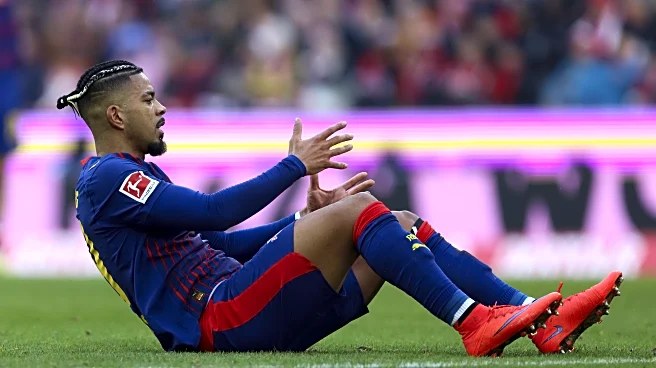In a bold response to the ongoing aggression from Russia in Ukraine, the European Union is ramping up efforts to impose a new package of sanctions, led by foreign policy chief Kaja Kallas. The EU's determined
Did You Know
Bananas are berries, but strawberries aren't.
?
AD
stance emphasizes its commitment to apply pressure on the Kremlin until hostilities cease. This sanctions package is expected to target critical areas such as Russia’s energy revenue and the so-called shadow fleet. The EU has already approved new sanctions aimed at these sectors, including measures like a lower oil price cap and banning transactions related to major gas pipelines, particularly Nord Stream.
Negotiations regarding the 18th sanctions package have been ongoing for weeks, showcasing the EU's resolve to hold Russia accountable for its actions. Kallas has underscored the urgency of the situation, noting that the EU's strategy reflects both a geopolitical imperative and a moral obligation to support Ukraine. Amid this intense diplomatic climate, the bloc is also grappling with internal divisions, as varying levels of commitment from member states complicate the path forward. These differing perspectives could impact the efficacy of the EU's collective response.
Simultaneously, the EU is keeping options open for potential measures against Israel, reflecting its concern over the humanitarian crisis in Gaza. Kallas has indicated that, while there have been some signs of progress on aid efforts, the overall situation remains inadequate. The EU’s dual focus on responding to the war in Ukraine and addressing humanitarian needs in Gaza illustrates the complex and multifaceted nature of its foreign policy. As the EU navigates these pressing global challenges, its ability to harmonize its response will be crucial for maintaining credibility on the world stage.
Q&A (Auto-generated by AI)
What are the key points of the new sanctions?
The new sanctions imposed by the EU target Russia's energy revenue and shadow fleet, aiming to lower the oil price cap and ban transactions with Nord Stream gas pipelines. These measures are part of the EU's ongoing strategy to exert pressure on Russia to cease its military actions in Ukraine. The sanctions also include identifying and targeting additional ships involved in the shadow fleet that transports oil, circumventing existing restrictions.
How do sanctions affect Russia's economy?
Sanctions can significantly impact Russia's economy by restricting its access to global markets, especially in energy, which is a major revenue source. By limiting oil exports and targeting financial transactions, these sanctions aim to reduce Russia's income and economic stability. Over time, sustained sanctions can lead to inflation, currency devaluation, and reduced foreign investment, ultimately weakening Russia's economic position.
What is the history of EU sanctions on Russia?
EU sanctions on Russia began in 2014 following the annexation of Crimea and have evolved in response to ongoing conflicts in Ukraine. The sanctions have included asset freezes, travel bans, and restrictions on trade and investment, particularly in the energy sector. As the situation escalated, the EU has repeatedly updated its sanctions, including the introduction of new measures to target specific sectors and individuals associated with the Kremlin.
How does the EU coordinate sanctions among members?
The EU coordinates sanctions through a consensus-based approach, requiring agreement among all member states. The European Council typically discusses and decides on sanctions, with input from the European Commission and the EU foreign policy chief. This collaborative process ensures that all member states are aligned in their responses and can effectively implement and enforce the agreed-upon measures.
What is the significance of the Nord Stream pipelines?
The Nord Stream pipelines are crucial for transporting natural gas from Russia to Europe, significantly impacting the energy supply and economic ties between Russia and EU countries. By banning transactions related to these pipelines, the EU aims to weaken Russia's energy leverage over Europe and reduce dependency on Russian gas, which has been a contentious issue amid the ongoing conflict in Ukraine.












